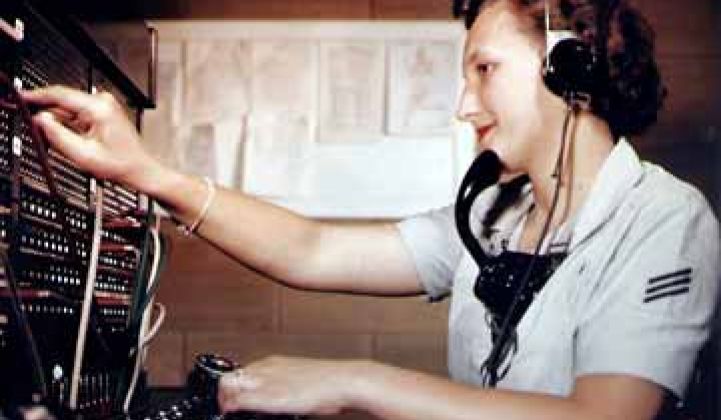For all the hype about Chief Customer Officers in the utility space, you have to wonder if they ever answer the phones. They’re eager to speak with reporters (and probably "team members" and other C-level execs) about carving a new path of engaging consumers, but the reality is that the message has not trickled down.
A recent thesis written by an undergraduate at Purdue University involved the researcher calling 100 electric companies that were planning or deploying smart grid technologies. The result was that far too many of the utilities’ front line employees were not equipped to answer questions, and at times, gave shockingly uninformed responses to an eager customer.
Kelsey Schamber, a honors student at the College of Consumer and Family Sciences at Purdue University, asked the call center employees six questions, posing as a customer moving into their service area:
- Is your company doing anything to implement Smart Grid technology?
- Do you have information available about the Smart Grid?
- Do your customers have smart meters?
- Does your company have a smart meter program where consumers will get smart meters?
- Do you have information about smart meters? How can I get this information?
- Does your company have a corporate green/conservation philosophy? Where can I get that?
Admittedly, many of the utilities that were contacted were still in the infancy of their smart grid rollout. Even so, 11 percent said they weren’t even familiar with smart grid technologies, even though all of the utilities had some project in the works. A handful of companies “claimed that they were aware of the Smart Grid technology but were afraid to implement it, as it would eliminate jobs within the company.” Certainly that’s not toeing the company line.
Only one-third of call centers could give Schamber any additional information about their smart grid projects, and many just transferred her around to other employees who were equally unhelpful.
Less than half knew about programs where customers would get smart meters now or in the future, but of those utilities that did provide additional information, it was most helpful when it didn’t involve being transferred multiple times.
One of the most interesting conclusions drawn in the thesis is that “overly helpful customer service representatives were rare.” The culture of lack of enthusiasm and awareness is apparent in some of the more damning quotes that were included in the report:
- “I don’t know what that is, can you explain that to me?” (concerning the Smart Grid technology and smart meters)
- “We have nothing like that technology.”
- “We only have traditional digital meters that are read at the end of each day.”
- “We are thinking about implementing the technology in the near future, but there is a possibility of taking away existing jobs if we implement the Smart Grid now.”
- “You would need to contact the public relations or human resources department to address those issues” (concerning the conservation philosophy of the utility company)
- “Why are you requesting this information?”
- “No one knows where to send you, what is the Smart Grid?” (after being transferred multiple times to departments that were unaware of what the researcher was talking about)
So on a good day, only one-third to one-half of the utility call centers in the study could answer questions in any detail about smart grid projects, but there are some positive takeaways.
The thesis found that more than 90 percent of the customer service representatives were versed in “green” and energy saving initiatives and could talk in detail about what the programs were. For utilities that were near the completion, or far into, their smart meter rollout, they were much more able to answer questions from the consumer.
There will obviously be a learning curve as new technologies are adopted, but the results of this (not quite scientific) study found that most utilities have barely jumped on the curve at all. In a webinar about utility customer care hosted by Greentech Media, there was a lot of talk about “touch points” and “life cycle” models with consumers.
But there is a reality far outside of this corporate jargon. There is not even a basic understanding in the majority of call centers of what’s being implemented, what it means or how to convey that to customers. Call center representatives are not armed with talking points or resources about where to send people who are interested/scared/angry/enthusiastic about smart grid and what it will mean for them.
So while utilities are embracing Chief Customer Officers to plan long-term strategies, there needs to be some triage on what can be done today on the front lines.



